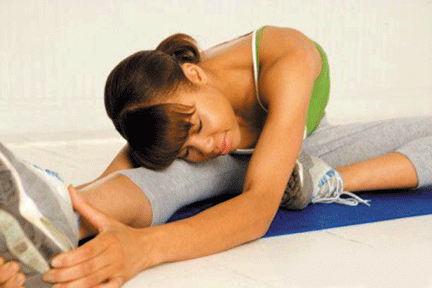
Before starting an exercise programme, it is important to be familiar with some important guidelines. The following are some of them:
Get a medical check-up. You should have had a medical examination within the last year to be sure you do not have any conditions that would make it unsafe to exercise. Regardless of the age, if the medical history includes the problems of the heart, blood vessels, lungs, or joints do not start a jogging or other exercise programme without a doctor’s approval.
Dress properly for exercise. Get some exercise clothing so that you will not get your good clothes dirty. Clothes should be comfortable, loose-fitting and washable. Before starting a new exercise or sport, check on the special equipment needed for it. If wearing special equipment is needed, such as leotards for gymnastics and a helmet for bicycle racing, obtain and wear proper equipment before beginning.
Good shoes and socks are important. The best way to prevent sore feet, blisters, aching ankles and knees is to wear good shoes and socks for running, jogging or biking. The shoe sole should be firm; the top should be flexible, and the insole should have a good arch support and cushioning.
Warm-up helps. Mild warm-up and passive stretching exercises before jogging, performing callisthenics, or playing a vigorous sport help eliminate soreness and injury.
Pick a regular time for exercise. A good rule is to set a certain time everyday and try to keep this appointment with yourself. Avoid rigorous exercise immediately after a meal. Wait an hour or two before starting to exercise vigorously. You may get nausea or cramps if you exercise on a full stomach, and you may not perform as well either. If you do not eat heavily, mild to moderate activity can be done shortly after eating.
Do not exercise outdoors while pollution is high. High air pollution affects the lungs. So be sure to avoid areas where pollution is high when exercising.



















